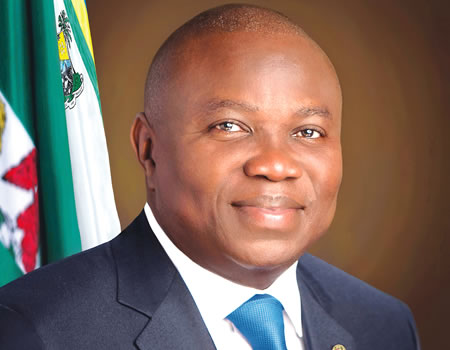Condemning what he described as stereotype assessment, Mr Tunji Adelana, a US-based planner, said if Lagos was ranked 138th of the 140 countries ranked by the EIU in its 2018 report, which position is Ethiopia, Eritrea, Khartoum and other cities?
“Just like the period when Lagos was tagged “the dirtiest city in the world,” the same stereotype is still holds by many analysts of the western bias.
ALSO READ: Former Plateau gov, Jang joins presidential race
“Categorising Lagos in the same peestal with Syria’s war-torn capital, Damascus, and Bangladesh’s Dhaka. Where both cities are hotbeds of violence, destruction and war is a misplaced assessment,” he said.
Another commentator, Mr Biola Balogun, also a practitioner of town planing and urban development, was no less furious about the report, which he said was not based on any empirical reality.
“The question to ask is which state is violence more pronounced in Nigeria? North East or Lagos? Outside Nigeria, where is violence more pronounced between Mexico and Lagos? Many Arab cities are prone to violence than Lagos State.
“More than any administration before him, Ambode is doing wonderfully well in the area of security, infrastructure provision and other areas of the economy. So, the body that carried out the report did a great dis-service to itself and those that didn’t see Lagos before and now? Said Balogun.
Dr Tayo Arulogun, a public affiars analyst said he couldn’t agree less than the response of the Lagos State government, that the report has shown years of neglect and denial by the Federal Government.
Quoting the Commissioner for Information and Strategy, Mr. Kehinde Bamigbetan, who said the report had clearly identified the years of neglect and denial by the Federal government that led to the poor state of infrastructure in Lagos State.
“What we are witnessing in Apapa-Tin-Can Island and Oshodi axis in the area of traffic was as a result of neglect by the previous administration at the federal level.
“Assuming Lagos was giving a special status with special allocation from the federal purse, things cannot be like this”. He said.
Although, the report commended Ambode administration for working tirelessly within three years to improve the level of infrastructure across the state, but the ranking cannot said to be objective.
The new ranking saw the Australian capital, Melbourne, lose the title of world’s most liveable city after a seven-year reign after dropping to second by just 0.7 percent. The city was piped to the post by Vienna, which received an overall score of 99.1 percent. In 2017, Lagos was ranked the second worst city to live in after Damascus.
According to the EIU, Austria’s capital’s rise to the top was attributed to increased security scores due to a return to relative stability across much of Europe after high-profile terrorist attacks in recent years.
The annual list assesses include political stability, health care, culture and environment, education and infrastructure in 140 different cities of the world.
While may score Lagos low in the area of the environmental issues, the present administration is doing well in the areas of education, securiry and the economy, said a cross-section of those who reacted to the EIU’s assessment.
The ranking by the body showed that global live-ability has improved for the second year in a row, with increament from 74.8 per cent last year to 75.7 per cent in 2018.
In the new ranking, published last week, Japan’s Osaka and Tokyo have now moved up into the top 10, coming in third and seventh place respectively. The report reads in part: “Osaka stands out especially, having climbed six positions, to third place, over the past six months, closing the gap with Melbourne. “It is now separated from the former top-ranked city by a mere 0.7 of a percentage point. Osaka’s improvements in scores for quality and availability of public transportation, as well as a consistent decline in crime rates, have contributed to higher ratings in the infrastructure and stability categories respectively.”
On the other hand, Hamburg and Helsinki, that held tenth and ninth place last year, have dropped out of the top ten, while this year’s ninth-place spot went to Copenhagen, which achieved a score of 96.8 per cent. Canada, Toronto, Calgary and Vancouver also performed relatively well, the report said.
The report equally noted that global business centres tend to be victims of their own success because the ‘big city’ buzz they enjoy could overstretch infrastructure and cause higher crime rates. It noted that New York (57th), London (48th) and Paris (19th), for instance, are all prestigious hubs with numerous recreational activities but they all suffer from higher levels of crime, congestion and public transport problems. The report showed without much surprise that Syria’s war-torn capital, Damascus, continues to languish at the bottom of the list, with an overall score of 30.7 per cent. It was followed by Bangladesh’s Dhaka and Lagos, Nigeria’s commercial centre. In 2017, Lagos was ranked the second worst city to live in after Damascus.






